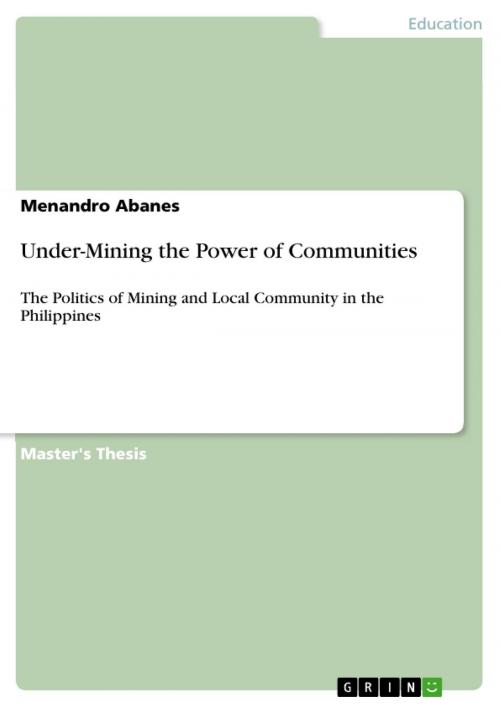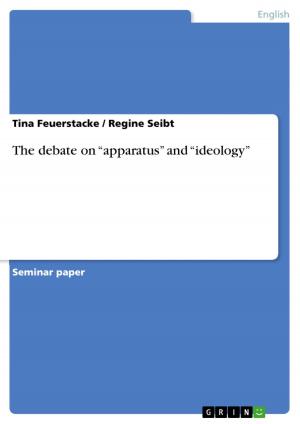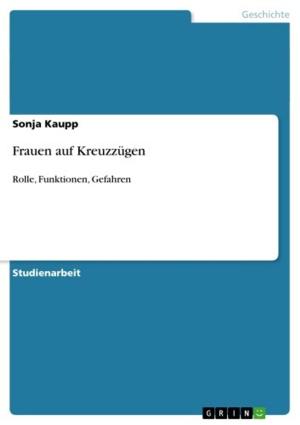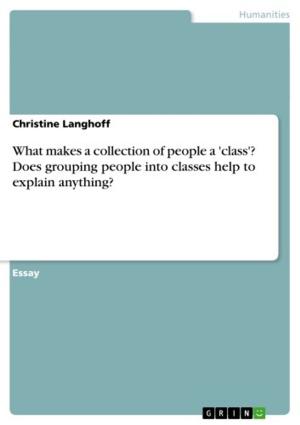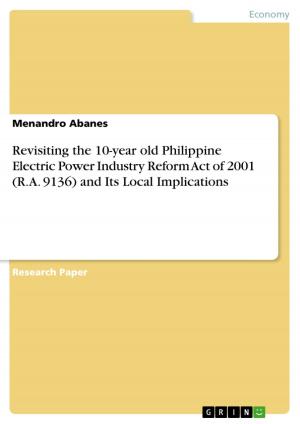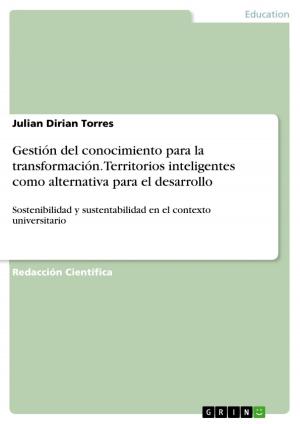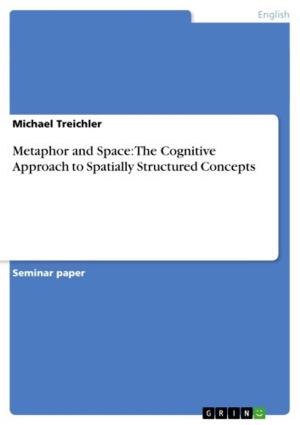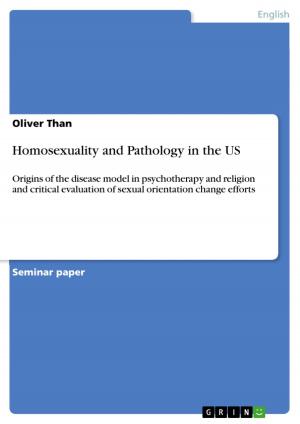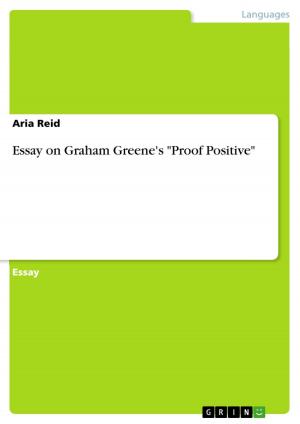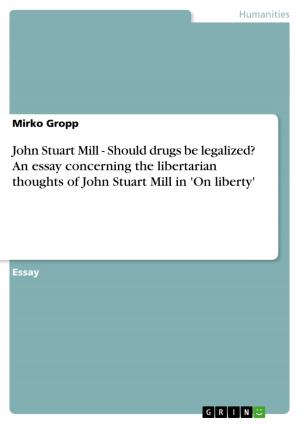Under-Mining the Power of Communities
The Politics of Mining and Local Community in the Philippines
Nonfiction, Reference & Language, Education & Teaching| Author: | Menandro Abanes | ISBN: | 9783640771875 |
| Publisher: | GRIN Publishing | Publication: | December 8, 2010 |
| Imprint: | GRIN Publishing | Language: | English |
| Author: | Menandro Abanes |
| ISBN: | 9783640771875 |
| Publisher: | GRIN Publishing |
| Publication: | December 8, 2010 |
| Imprint: | GRIN Publishing |
| Language: | English |
Master's Thesis from the year 2006 in the subject Pedagogy - Science, Theory, Anthropology, grade: B, Ateneo de Manila University (Institute of Philippine Culture), course: MA Anthropology, language: English, abstract: Environmentally critical projects such as mining remain a controversial and divisive issue in mineral-rich communities. Arguably, mining projects bring jobs, revenues to local governments, cash income, and various development projects, such as electrification, paved roads, schools with free or subsidized education, chapels, water system, and other livelihood programs. In many instances, these benefits are very enticing and attractive to locals. However, scientific studies and objective data on mining operations in various communities have found out that mining also brings adverse effects and negative impacts on locals and the environment, such as displacement from homes and traditional livelihoods, dependence on cash income and incursion into their value system leading to consumerism, health problems caused by exposure to toxic materials, siltation of waterways, deforestation, loss of productive land, and pollution of marine environments (Coumans, 1999; Florentino-Hofileña, 1996; McAndrew, 1983; Regis, 2001; Tujan & Guzman, 1998). Environmental advocacy campaigns of both pro- and anti-mining communicate these mining benefits and costs to the locals to convince them either to accept the mining project or join the struggle against the mining project. Given these two scenarios, how do locals decide when a mining project is presented in their community? How do they participate in the decision-making that impact on their economic, political and socio-cultural standing? What influences their participation in decision-making and their decision? The locals of Rapu-Rapu Island were in that situation in 2001 when a mining project was seeking social acceptability from the local communities. This study revisited their decision and explained why they decided that way. It also took into account the crucial contexts of the decision-making of the locals.
Menandro S. Abanes is a researcher from the Philippines. He earned his PhD in Social Science from Radboud University Nijmegen. He teaches at Ateneo de Naga University in Bicol, Philippines.
Master's Thesis from the year 2006 in the subject Pedagogy - Science, Theory, Anthropology, grade: B, Ateneo de Manila University (Institute of Philippine Culture), course: MA Anthropology, language: English, abstract: Environmentally critical projects such as mining remain a controversial and divisive issue in mineral-rich communities. Arguably, mining projects bring jobs, revenues to local governments, cash income, and various development projects, such as electrification, paved roads, schools with free or subsidized education, chapels, water system, and other livelihood programs. In many instances, these benefits are very enticing and attractive to locals. However, scientific studies and objective data on mining operations in various communities have found out that mining also brings adverse effects and negative impacts on locals and the environment, such as displacement from homes and traditional livelihoods, dependence on cash income and incursion into their value system leading to consumerism, health problems caused by exposure to toxic materials, siltation of waterways, deforestation, loss of productive land, and pollution of marine environments (Coumans, 1999; Florentino-Hofileña, 1996; McAndrew, 1983; Regis, 2001; Tujan & Guzman, 1998). Environmental advocacy campaigns of both pro- and anti-mining communicate these mining benefits and costs to the locals to convince them either to accept the mining project or join the struggle against the mining project. Given these two scenarios, how do locals decide when a mining project is presented in their community? How do they participate in the decision-making that impact on their economic, political and socio-cultural standing? What influences their participation in decision-making and their decision? The locals of Rapu-Rapu Island were in that situation in 2001 when a mining project was seeking social acceptability from the local communities. This study revisited their decision and explained why they decided that way. It also took into account the crucial contexts of the decision-making of the locals.
Menandro S. Abanes is a researcher from the Philippines. He earned his PhD in Social Science from Radboud University Nijmegen. He teaches at Ateneo de Naga University in Bicol, Philippines.
